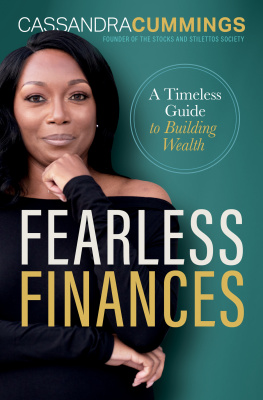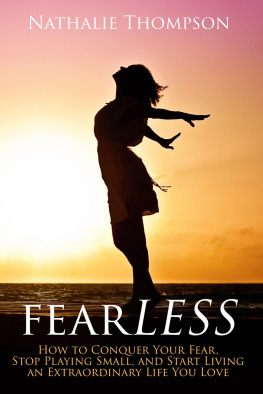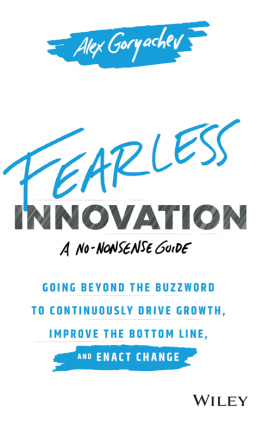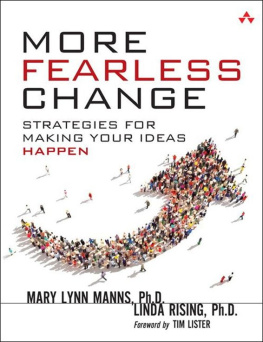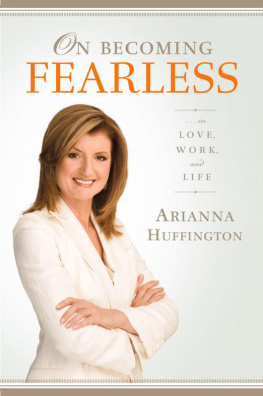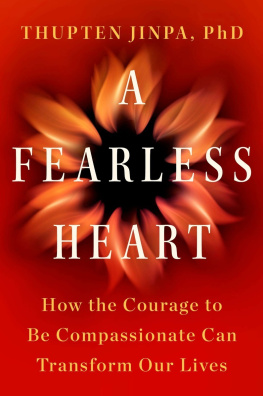Thank you for downloading this Simon & Schuster ebook.
Get a FREE ebook when you join our mailing list. Plus, get updates on new releases, deals, recommended reads, and more from Simon & Schuster. Click below to sign up and see terms and conditions.
CLICK HERE TO SIGN UP
Already a subscriber? Provide your email again so we can register this ebook and send you more of what you like to read. You will continue to receive exclusive offers in your inbox.
We hope you enjoyed reading this Simon & Schuster ebook.
Get a FREE ebook when you join our mailing list. Plus, get updates on new releases, deals, recommended reads, and more from Simon & Schuster. Click below to sign up and see terms and conditions.
CLICK HERE TO SIGN UP
Already a subscriber? Provide your email again so we can register this ebook and send you more of what you like to read. You will continue to receive exclusive offers in your inbox.

Simon & Schuster
1230 Avenue of the Americas
New York, NY 10020
www.SimonandSchuster.com
Copyright 2019 by The Case Foundation
All rights reserved, including the right to reproduce this book or portions thereof in any form whatsoever. For information, address Simon & Schuster Subsidiary Rights Department, 1230 Avenue of the Americas, New York, NY 10020.
First Simon & Schuster hardcover edition January 2019
SIMON & SCHUSTER and colophon are registered trademarks of Simon & Schuster, Inc.
For information about special discounts for bulk purchases, please contact Simon & Schuster Special Sales at 1-866-506-1949 or .
The Simon & Schuster Speakers Bureau can bring authors to your live event. For more information or to book an event, contact the Simon & Schuster Speakers Bureau at 1-866-248-3049 or visit our website at www.simonspeakers.com.
Interior design by Carly Loman
Jacket design by Post Typography
Library of Congress Cataloging-in-Publication Data
Names: Case, Jean, author.
Title: Be fearless : 5 principles for a life of breakthroughs and purpose /
Jean Case.
Description: New York : Simon & Schuster, [2019] | Includes bibliographical
references and index.
Identifiers: LCCN 2018034852 (print) | LCCN 2018037028 (ebook) | ISBN
9781501196362 (ebook) | ISBN 9781501196348 (hardcover : alk. paper)
Subjects: LCSH: Courage. | Change (Psychology) | Organizational change. |
Social change. | Conduct of life.
Classification: LCC BJ1533.C8 (ebook) | LCC BJ1533.C8 C37 2019 (print) | DDC 155.2/4dc23
ISBN 978-1-5011-9634-8
ISBN 978-1-5011-9636-2 (ebook)
To each person who has heard that voice whisper,
This is your moment
and is choosing to heed the call.
And to all of those who have inspired and supported my own fearless journey.
If you added up all the times you failed,
all the times you came up short,
would you try again?
What if failure wasnt a limitation?
What if taking risks was your status quo?
What kind of world would you imagine?
When the challenges we face seem overwhelming,
we need to experiment with new thinking and try new things,
create unlikely partnerships
and set audacious goals.
To build a better world,
to make a real difference,
we have to take bigger risks,
make bigger bets.
And if we fail and fail again,
we have to get right back up and dream even bigger.
To live in a world worth living in,
we have to let challenge inspire us.
We have to take risks, be bold, and fail forward.
We have to Be Fearless .
FOREWORD
BY JANE GOODALL
One of the most important messages that I share with people as I travel around the world is that each one of us has some role to play, each one of us makes some impact on the environment, on our community, every day. And we can choose what sort of difference we want to make.
As you read National Geographic Society Chairman Jean Cases Be Fearless: 5 Principles for a Life of Breakthroughs and Purpose , youll see this is one of the key messages to her readers. This message resonates throughout her call for each of us to be fearlessor rather that we must, when necessary, overcome our fear to do what we know is right.
I know the importance of these messages, as the call to Be Fearless has been at the center of my entire life. I was fortunate. By the time I was ten years old, I knew I wanted to go to Africa to live with wild animals and write books about them. Fortunately, I had a wonderful and supportive mother. When everyone else told me to dream about something I could actually achieveafter all, we had very little money, World War II was raging, Africa seemed very far away, and I was a mere girl my mother simply told me I would have to work very hard, take advantage of all opportunitiesand never give up. I wish she was alive now so she could know how many people have said to me, Thank you, Jane. You taught me that because you could do it, I can do it too.
Well, it is well-known that I did get to Africa and that I had the amazing opportunity to live and learn from the animals most like us, the chimpanzees. No one had done this before. People often ask me, Werent you afraid when you were out there alone in the forest? Of course I was sometimes. We are meant to be, as fear gets the adrenaline flowing through our veins and gives us the courage to do what seems impossible. I was afraid when I heard the strange growling, roaring call of a leopard at night when I was sleeping alone under the stars to be close to the chimps when they woke in the morning. I told myself it would be okayand pulled the blanket over my head! I was afraid when two bull buffalo charged out of the undergrowthit was the surge of adrenaline that enabled me to climb a seemingly unclimbable tree. (It took more courage to, eventually, climb down, not knowing if they were still hiding, waiting for me. Luckily, they were not!) I was afraid when a group of chimps, having lost their fear of me, treated me like a predator, screaming, shaking branches, and charging. I acted as though I had no interest in them, dug a little hole in the ground, pretended to eat leavesand eventually they went away!
Finally, all the chimps got used to me, so I could move right up to them. I soon recognized them as individuals, gave them names, got to know their very different personalities. And I learned that their communication gestureskissing, embracing, patting one another, begging with outstretched hand, and so onwere almost the same as ours and used in the same context. I watched them use grass stems to fish for termites. I noted that their emotions, too, were similar to (or maybe the same as) ours in terms of happiness, sadness, fear, anger, depression, and grief.
It was a magical time in my life.
Then, after I had been with the chimps just over a year, I had to go to Cambridge University to work for a PhD in animal behavioreven though I had never been to college. There I had to Be Fearless and overcome a very different kind of fear: imagine how I felt when professors, of whom I was in awe, told me I had done everything wrong. I should not have given the chimpanzees namesnumbers would have been more scientific. I should not talk about their personalities, minds, or emotionsthose were qualities unique to humans. Fortunately, as I had not been to college, no one had told me this! Moreover, I had a wonderful childhood teachermy dog, Rusty! You cannot share your life in a meaningful way with any animal and not know that we are not the only beings with minds, personalities, and, above all, emotions. My mother always told me that if I believed I was right, I must have the courage of my convictions. So it was Rusty and my mother who helped me overcome my fear and stand up to those professors.
Next page

